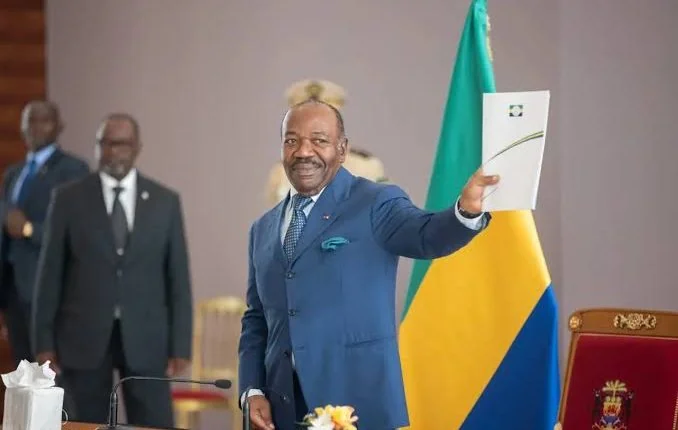
Gabon’s Transitional President Brice Oligui Nguema Receives Draft Constitution Outlining Major Reforms, Including Removal of Prime Minister Role and New Presidential Term Limits
Fiona Nanna, ForeMedia News
5 minutes read. Updated 3:03AM GMT Mon, 2September, 2024
In a significant step towards shaping Gabon’s political future, a draft version of the country’s new constitution was handed over to transitional president Brice Oligui Nguema in an official ceremony held at the presidential palace in Libreville. This move comes nearly a year after the military ousted former President Ali Bongo, ending his family’s more than 50-year rule over the central African nation.
A referendum on the new constitution is scheduled before the end of the year; however, the citizens of Gabon remain largely uninformed about the document’s contents. The Minister of Institutional Reform, who presented the draft, highlighted key changes designed to reshape the nation’s governance. Notably, the draft abolishes the position of prime minister and introduces a seven-year presidential term, which is renewable only once. It also includes stringent provisions against any president attempting to amend these terms, stating that such actions would constitute high treason.
Further details in the draft allow the president the authority to dissolve parliament, but also place them under the potential of impeachment by members of parliament and senators, should they commit high treason. In a move that may spark debate, the draft requires that presidential candidates have parents who were born Gabonese, a clause aimed at reinforcing national identity in the highest office of the land.
One of the more controversial aspects of the draft is the recognition of the soldiers who led the coup against the Bongo regime, elevating them to the rank of “Heroes” and granting them protection under an amnesty law. Additionally, the draft constitution enshrines marriage as the union between two people of opposite sexes, reflecting the country’s stance on social issues.
Despite the substantial changes proposed, the path forward is fraught with challenges. The military government has pledged to organize elections by August 2025, aiming to transition the country back to civilian rule. Last year’s coup was met with widespread jubilation, particularly among young Gabonese who have long demanded better living conditions and a fairer distribution of the nation’s wealth.
Gabon, which boasts one of the highest per capita incomes in sub-Saharan Africa according to World Bank data from 2021, remains paradoxically marred by poverty, with a third of its 2.3 million citizens living below the poverty line. As the country stands on the precipice of a new political era, the hopes of its people rest on the promise of meaningful reform and inclusive governance.

